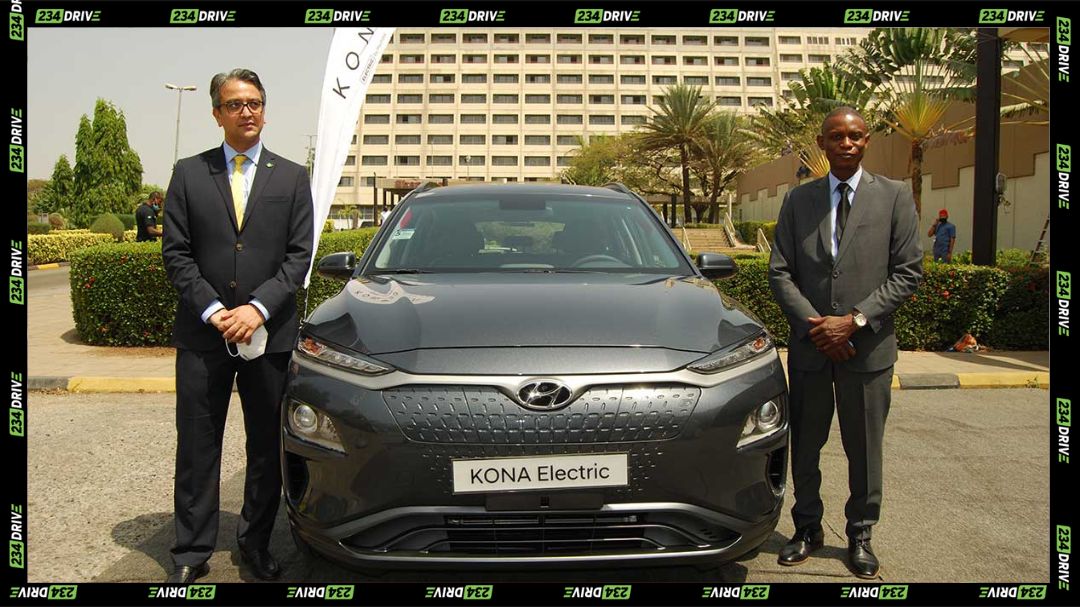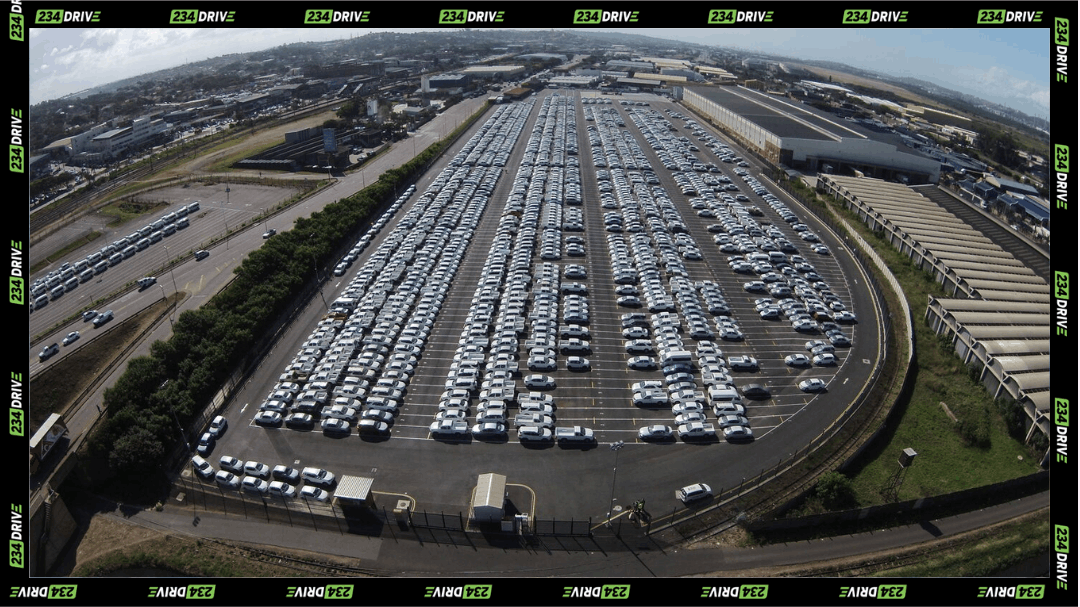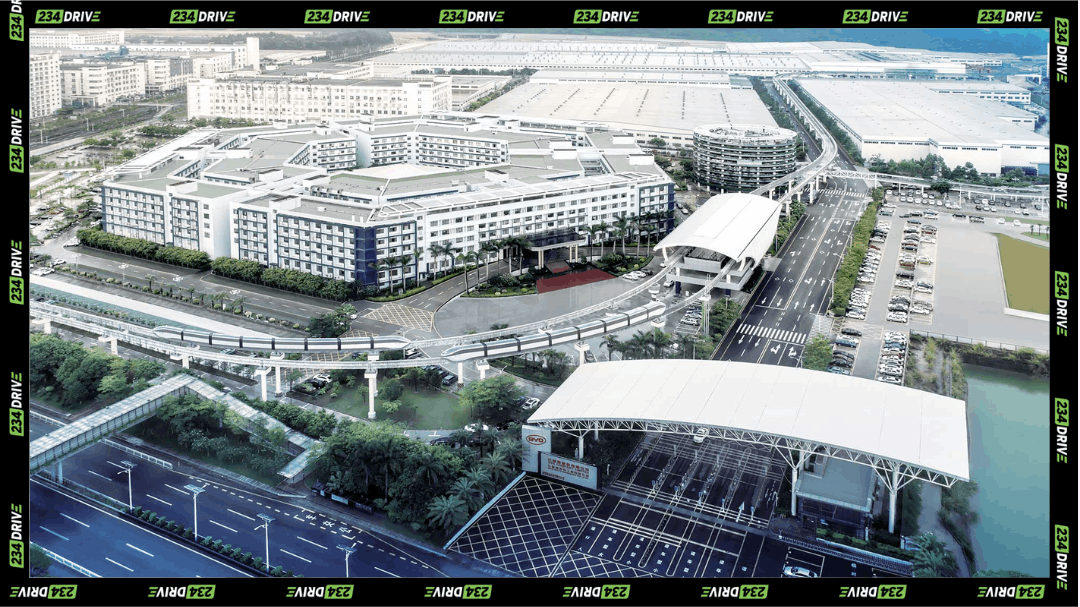On October 20, 2025, the Nigeria Customs Service (NCS) officially launched the Customs Verification Management System (CVMS) at its headquarters in Abuja. This marked a significant leap toward a more transparent, efficient, and tech-driven process for verifying imported vehicles. The platform, developed in partnership with the Trade Modernisation Project (TMP) and Afripoint Consult, allows users to verify a vehicle’s clearance and duty payment status in minutes using its Vehicle Identification Number (VIN). Accessible via cvms.nigeriatradehub.gov.ng, the system aims to eliminate intermediaries, reduce fraud, and modernise customs operations across the country. With a verification fee of ₦15,000, payable via debit or credit cards, the system provides a fast and contactless process for importers, buyers, and dealers alike.
According to Comptroller-General Bashir Adeniyi, the initiative reflects the NCS’s commitment to improving national security, curbing revenue leakages, and providing real-time access to verified data. Prior to the CVMS, the verification process was manual, fragmented, and vulnerable to fraud, leading to widespread misinformation and smuggling. The new platform standardises vehicle clearance validation across customs commands, offering instant verification results supported by analytics to detect irregularities. For both the NCS and the general public, this marks a turning point in Nigeria’s automotive import framework, enabling a more traceable and efficient system that benefits the government, businesses, and consumers.

The CVMS introduces a range of innovations aimed at streamlining the verification process and boosting efficiency. It drastically reduces the time needed for clearance confirmation from days to mere minutes. Users can log on to the portal, input their vehicle’s VIN, and immediately access details on import records, duty payments, and clearance certificates. This seamless process eliminates the need for third-party agents, a move expected to reduce cases of document forgery and corruption that have plagued vehicle importation for years. Furthermore, the platform’s centralised database allows customs officers to manage and monitor all vehicle records nationwide in real time, ensuring consistency in enforcement and compliance. By creating traceable digital records for each import, the system not only enhances transparency but also supports national security efforts to tackle smuggling networks.
Beyond efficiency, the CVMS’s design supports Nigeria’s broader vision for digital governance and economic modernisation. The integration of automated verification and real-time analytics ensures that customs processes align with global best practices, positioning Nigeria as a leader in digital customs management in West Africa. The initiative also encourages accountability among importers, reducing the risk of undervaluation or fraudulent declarations. For vehicle buyers, especially those purchasing pre-owned imports, the system provides peace of mind by confirming that their cars have cleared customs legitimately. This is particularly valuable in Nigeria’s bustling automobile market, where grey imports and tampered documentation have long created confusion and financial loss for unsuspecting buyers.
The CVMS could have indirect but significant implications for Nigeria’s electric vehicle (EV) and hybrid market. Although the system is not designed exclusively for EVs, its streamlined verification process supports the country’s growing shift toward green mobility. The National EV Policy of 2023 aims for 30% domestic EV production by 2032, incentivising local assembly through reduced import duties, VAT exemptions, and 10-year tax holidays. The CVMS complements this by simplifying the import verification process for EVs and related components, reducing bottlenecks for assemblers and distributors. In a country where high tariffs—up to 70% on fully built petrol and diesel cars—have historically restricted imports, such efficiency gains could make EVs and hybrids more accessible to consumers.
For context, Nigeria’s EV industry has made visible progress in recent years. Stallion Motors launched the Hyundai Kona EV in 2021, marking the country’s first locally assembled electric car. Innoson Vehicle Manufacturing, Nigeria’s indigenous automaker, has since joined the movement with plans to expand EV production for domestic use. Nord Motors, known for its locally produced CNG and electric models, represents another key player driving the transition toward sustainable mobility. The CVMS’s real-time verification could streamline importation for components and kits used in assembling these vehicles, reducing smuggling risks and ensuring compliance with EV-related incentives.

The impact of CVMS on the Nigerian automotive landscape extends to its broader economic and social context. Nigeria’s import-dependent car market has long suffered from inefficiencies caused by manual processes and weak oversight. These have led to widespread fraud, inflated vehicle prices, and loss of government revenue. By automating the verification process, CVMS offers a credible solution that enhances accountability and consumer protection. Buyers can verify that a car’s duty has been properly paid before purchase, reducing the prevalence of “uncleared” vehicles that often end up confiscated. The platform also aligns with the Federal Government’s trade facilitation agenda under the World Customs Organisation (WCO) framework, strengthening Nigeria’s competitiveness in regional and global trade.
However, challenges remain. The ₦15,000 verification fee, while modest compared to potential losses from fraud, may be considered high for some citizens in a developing economy. Moreover, awareness and adoption will determine the system’s success. Many car buyers and importers operate in informal markets where internet access and digital literacy may be limited. NCS’s collaboration with local tech firms and media outlets will be vital in ensuring that users understand how to access and use the platform effectively.
The relevance of this initiative also extends to Nigeria’s driving environment and lifestyle. Vehicles imported into Nigeria must withstand challenging road conditions, from poorly maintained highways to unpaved rural routes. The CVMS, by improving the traceability of legitimate imports, indirectly promotes the entry of better-quality vehicles suited to these conditions. For EVs and hybrids, which require stable supply chains and reliable after-sales support, streamlined customs verification ensures that genuine parts and certified models enter the market. This strengthens consumer confidence and supports long-term sustainability. Furthermore, Nigeria’s tropical climate demands vehicles with efficient cooling systems, robust suspension, and high ground clearance—all factors that legitimate importers can prioritise more easily under transparent regulatory oversight.
Comparatively, the CVMS places Nigeria ahead of many African peers still relying on semi-manual import verification processes. It enhances the country’s appeal to investors in the automotive and technology sectors by demonstrating a commitment to transparency and digital governance. For importers, the benefits include reduced waiting times, lower exposure to fraudulent intermediaries, and simplified record management. From a policy standpoint, the initiative strengthens Nigeria’s efforts to balance high import tariffs with incentives for local assembly, helping bridge the gap between imported and domestically produced vehicles.
When measured against regional rivals, Nigeria’s customs modernisation through CVMS gives it a strategic advantage. In countries like Ghana and Kenya, import verification still faces bureaucratic delays, while South Africa’s customs processes, though more advanced, are less accessible to smaller importers. Nigeria’s approach blends automation with inclusivity, allowing both individuals and corporations to verify their imports directly. The result is a more level playing field where local and foreign vehicle dealers operate transparently under uniform rules.
In conclusion, the launch of the Customs Verification Management System marks a milestone in Nigeria’s automotive and trade modernization. By digitising vehicle verification, NCS has taken a crucial step toward curbing fraud, increasing revenue, and supporting the country’s shift toward electric and hybrid mobility. While challenges like awareness, infrastructure, and affordability persist, the CVMS lays the foundation for a cleaner, more transparent import ecosystem. Its long-term success will depend on sustained government support, public engagement, and integration with Nigeria’s evolving EV policies. For now, it stands as a testament to the power of technology in reshaping one of the nation’s most vital sectors—the road to a smarter, more sustainable automotive future has begun.









